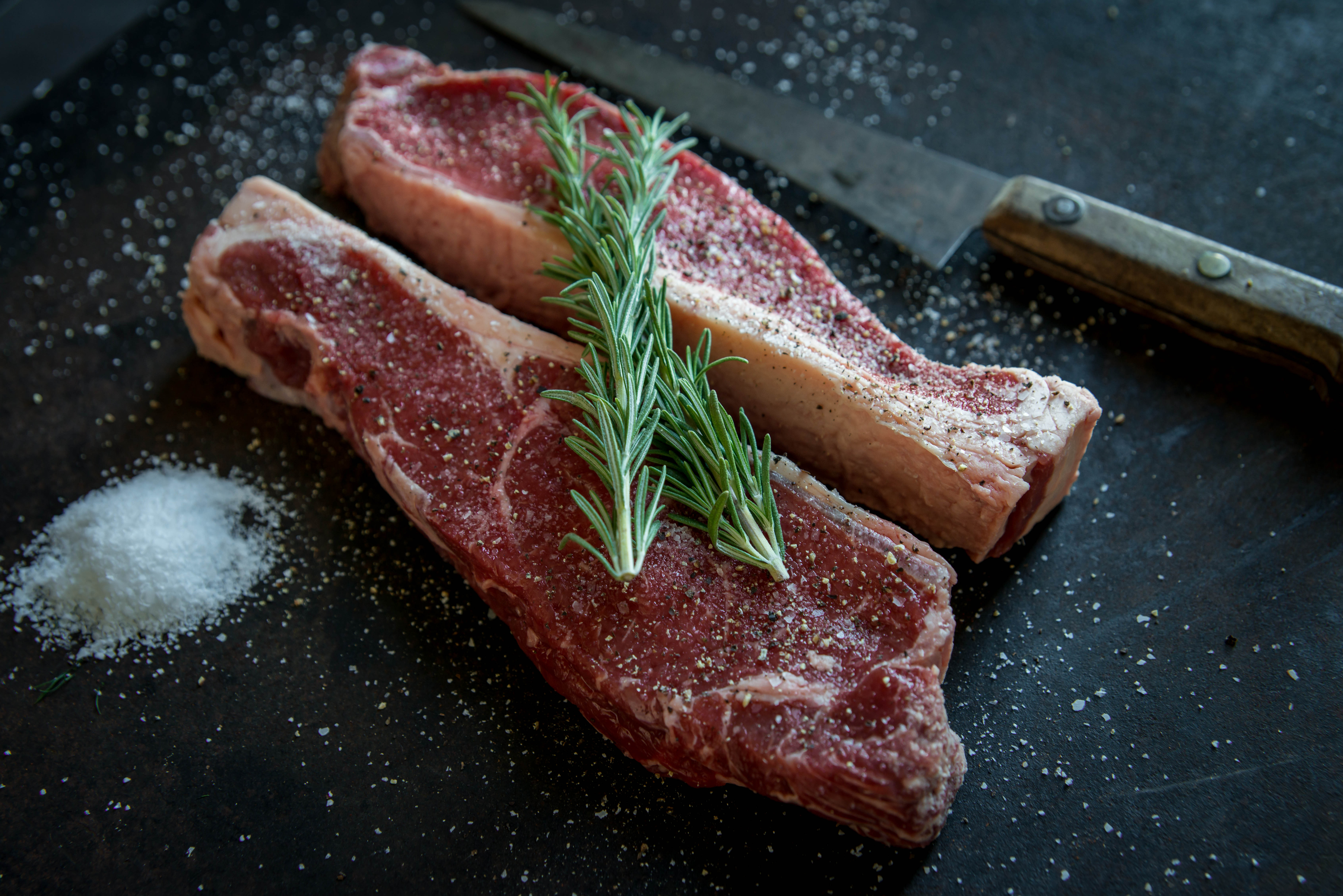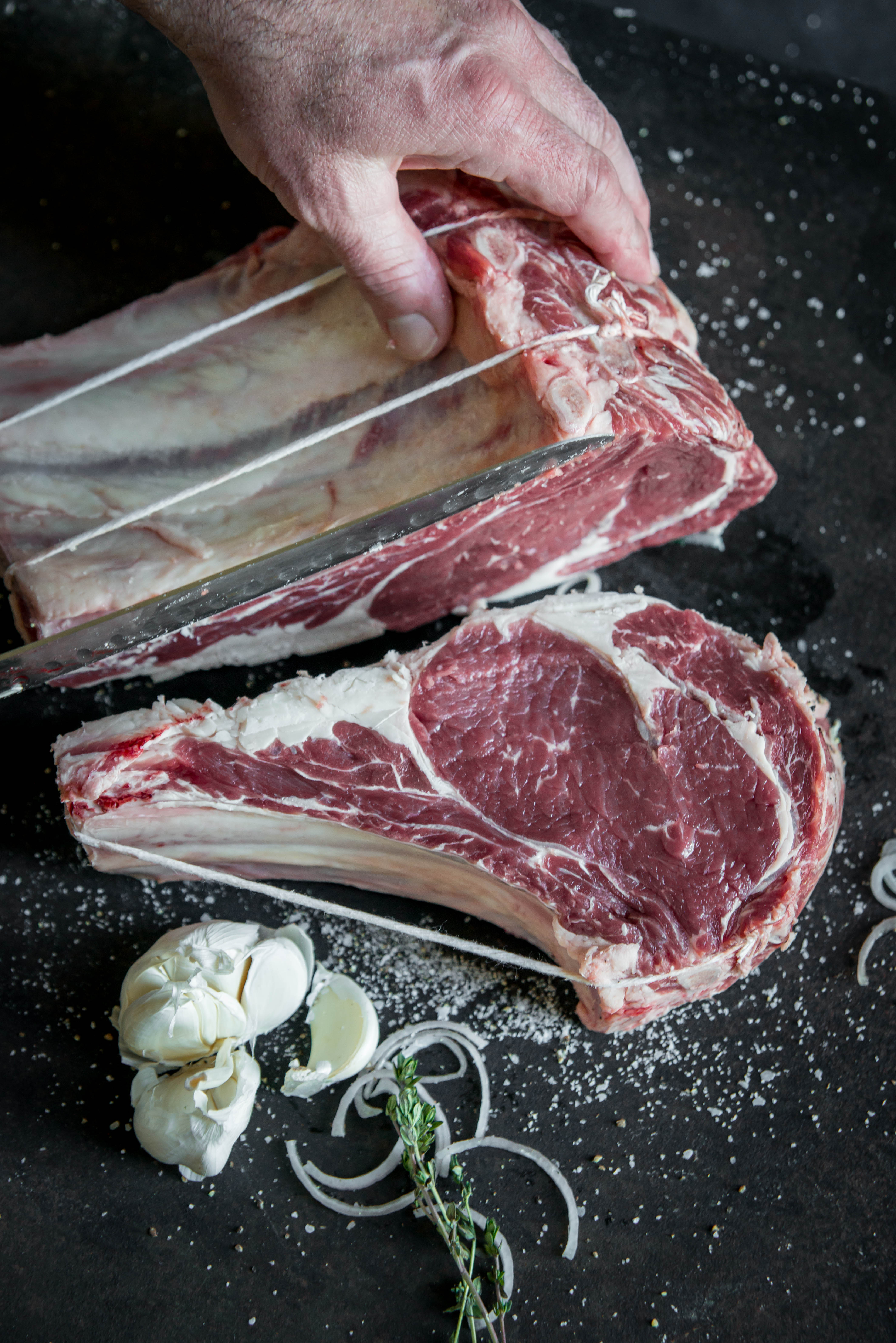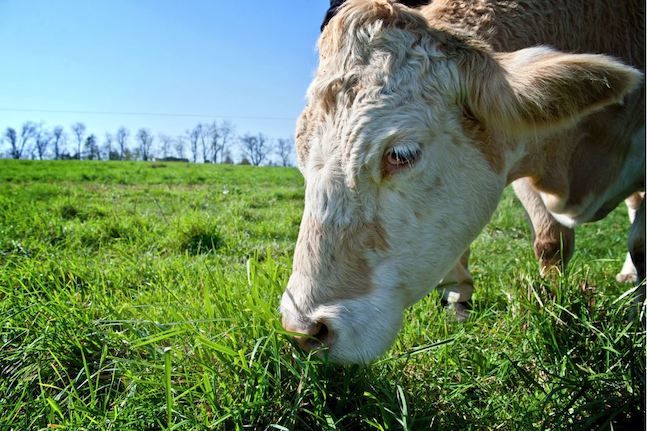With all of the headline hype about food health, it can be maddening trying to separate what is true and what isn’t about the meat we eat and feed our families. A food health Google search will have you swimming in articles and may cause you to back away slowly with more questions than answers. So, what is the real deal?
Right now, the meat industry is highly centralized with just a handful of companies controlling virtually all of the supply. There are a lot of producers and a lot of consumers, but this handful of companies in control act as the gatekeepers of our meat, exerting pressure and controlling prices. Sometimes these prices are fair to the farmers, but often times they are below the cost of production. This puts extreme pressure on everyone in the meat industry to get margins lower and lower to create profits. These pressures put American livestock farmers and localized retailers in a very tough spot.

So, why switch to buying local, grass-fed and pastured meat? It really is a simple question with a simple list of answers:
1. It is a simpler equation.
Utilizing a more direct link to your meat, like a local farm or a researched grass-fed product option, is opting out of the centralized meat industry and going straight to the source. You get what you pay for, and you get to support the dignified occupations of your farmers, butchers and local retailers.
It has less overall fat. And more Omega-3 fatty acids. And more Antioxidant vitamins.
3. It contains less chemicals (as in NO chemicals).
In grain-fed meat, there is higher risk that chemicals (steroids, antibiotics, hormones) or other non-food elements were added to the animal’s diet. Buying grass-fed/pasture raised allows one to completely avoid these risks.
4. It is better for the local environment and community.
Pastured animals promote biodiversity naturally. Here’s how:
When animals eat from the pasture, they remove old growth, making room for new, nutritious grass. When animals walk, stomp, play, peck, root and roll in the pasture, they push new seeds and manure into the soil. Consequently, grazing animals are natural fertilizers for soil.
Also – buying local meat supports your local economy, rather than lining the pockets of the food industry billionaires.
5. It is more humane.
If the meat you buy is not specifically marked “grass-fed” and/or “pasture raised”, that means the animal was raised in confinement. Confinement farming leads to animal stress, abuse, and unnecessary use of chemicals and drugs.
Livestock were meant to graze. The rhythm of day and night, and the process of foraging for food is natural to their growth and development and creates a healthier animal.

Convinced yet? If so, here are some important things to look for on meat labels in the grocery isle or local farm retailer to help as you start the local shopping journey:
Grass-fed or Pasture Raised – If you’re looking for beef, buy grass-fed. Beef cattle are ruminants, which mean in nature they live pretty much exclusively on grass. Pigs and chickens don’t graze grass only, but forage in, around, and under it as well, so for these proteins, look for pasture-raised. That means the animals were outside foraging for their own fresh food, natural to their diet. These systems are the most natural for the livestock and great for farmers and eaters too.
All Natural** – This should be outlined on packaging as “**no antibiotics, steroids, or added hormones”. Unfortunately, if your meat packaging does not specify this, it is highly likely that some of these chemicals were used to treat the product at some point during the process.
And another important note – organic products have an additional list of prohibited feeds and regulations which may be important to you, but don’t choose any claim over access to pasture. Pasture raised products already have many of the attributes that you associate with organic but organic products leave room for grain finishing and even confinement to qualify.
Local Products – Or at least products that say where they’re from. A large and increasing percentage of meat with special claims – like all “natural” or “grass-fed” – comes from overseas. Many such claims are based on no more than a paper trail of affidavits and it is always better to trust the source than the claim.

Lastly, let’s not forget to mention the increased cost of buying local and grass-fed. There is no getting around the fact that local, grass-fed meat is more expensive for the customer, and that is because it is more expensive to farm responsibly and sustainably, with animal welfare as a priority. So with this in mind, here are some thoughtful shopping tips to utilize as you take this local leap:
1. Consider shopping LOCAL. Go straight to the source for the best prices and freshest product.
2. Buy in bulk and freeze. This can make things more cost effective when shopping online or at your local source.
3. Learn to cook with less expensive cuts and utilize the whole animal.
4. Eat less meat. If you’re pinching pennies, think quality over quantity.
Want more information like this? Sign up for our newsletter at the top of this page, or follow us on social media for updates.


